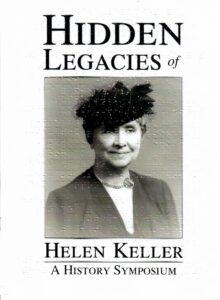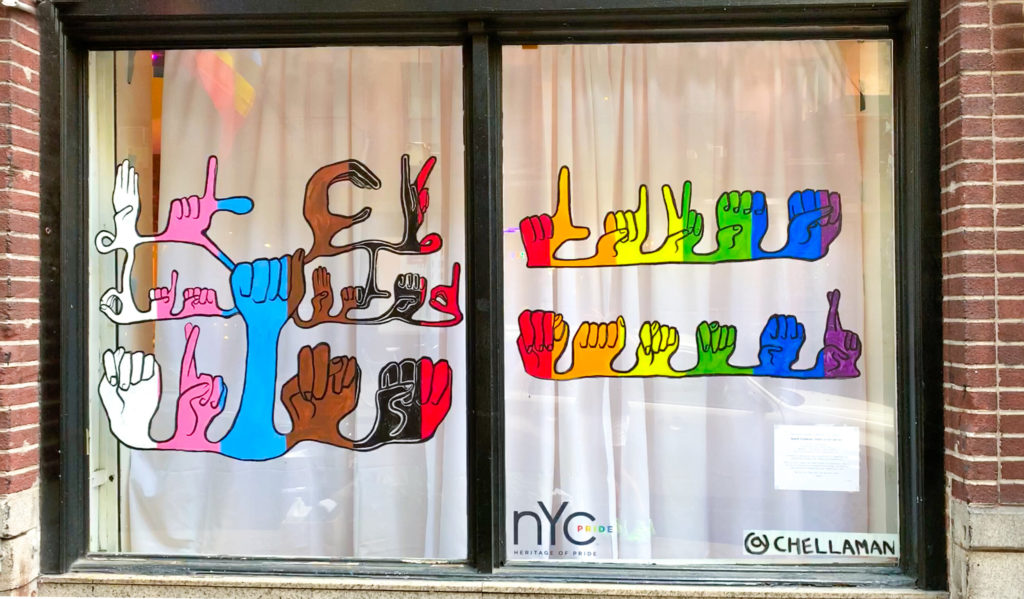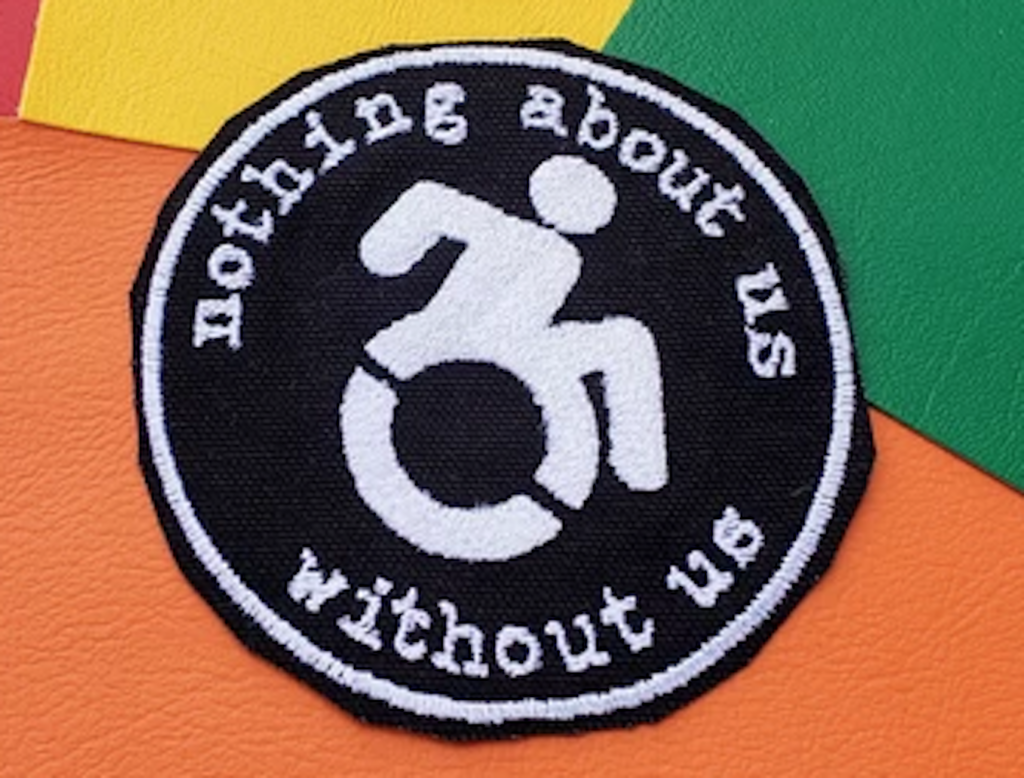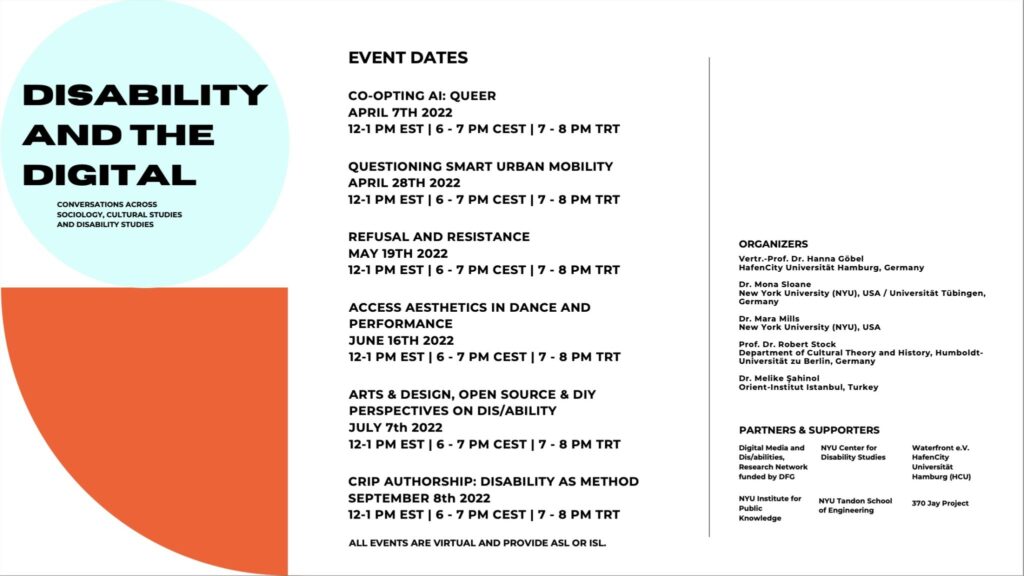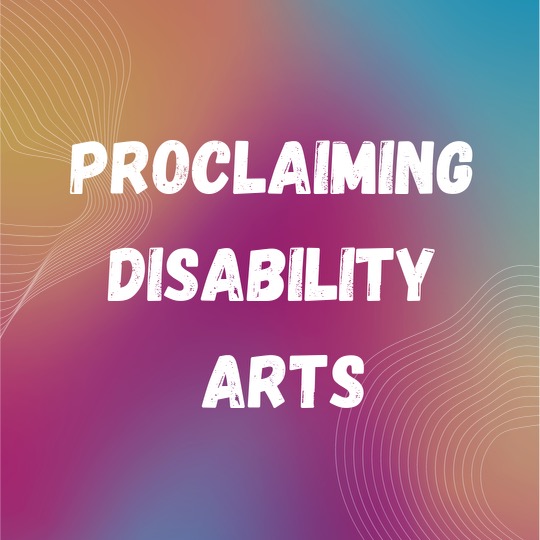Projects
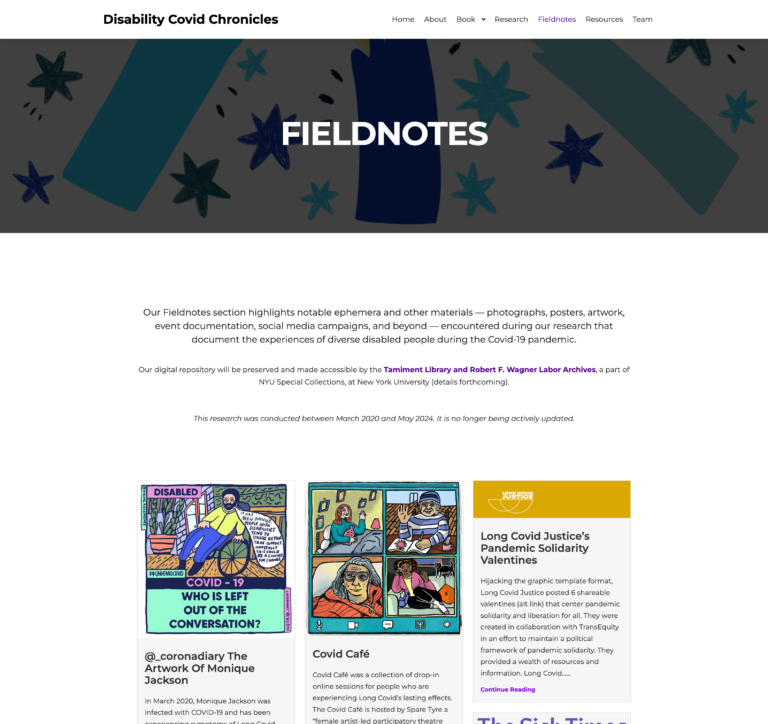
CDS is delighted to announce the launch of the Disability Covid Chronicles Web Collection at the NYU Tamiment Library and Robert F. Wagner Labor Archives. This collection contains 151 archived social media posts, opinion pieces, petitions, event listings, videos, photographs, art exhibitions, government documents, and toolkits produced by disabled activists, writers, and artists in response to the COVID-19 pandemic during the years 2020-2024.
Global Disability Dialogue
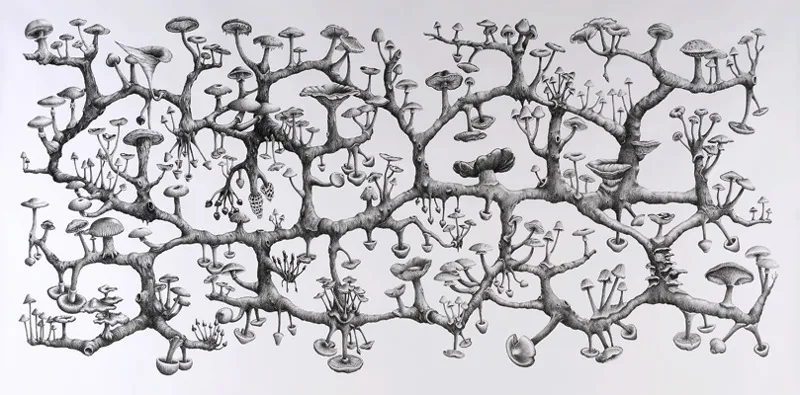
Global Disability Dialogue was organized in December 2022 by Miyuki Tanaka, Yan Grenier, and Sasha Kurlenkova, three international disability activists, researchers, and nondisabled allies (from Japan, Canada, and Russia) affiliated in different capacities with the Center for Disability Studies at New York University. Global Disability Dialogue is an informal space for disabled people and allies. Activists, students, scholars, and artists are invited to bring and discuss their work, research, art, and initiatives. We hold virtual meetings once a month (based on the needs and resources of the group), and plan to do activist events outside when it’s warmer in New York City. We welcome non-academic event ideas, coming from people’s lived experiences and advocacy work, if you think our collective can support you and your project. We also welcome students and people from non-american settings to share their ongoing disability- and access-related projects and receive feedback on them. All our events have ASL interpretation and closed captions thanks to the support of the Center for Disability Studies. If you are interested in joining the Dialogues as a presenter or participant, please fill out this form: https://forms.gle/otNMmqpWPSf66jP97
The Museum of the American Printing House for the Blind creates encounters with artifacts, images, and ideas that engage people with the history of literacy and learning for people who are blind or visually impaired and the role of the American Printing House for the Blind, changing their minds, attitudes, and actions.
For more information visit https://aphmuseum.org.
The NYU Center for Disability Studies is documenting the experiences of disabled and chronically ill people during the current COVID-19 pandemic. Disabled people, especially people of color and those living in nursing homes or other congregate housing, have been at greatest risk of infection and death from COVID-19. In building a publicly-accessible archive, we collaborate with community members to preserve memories, stories, artworks, and other materials in a range of accessible formats. We are also preserving conversations on social media, records of digital public meetings, and photographs of street art and actions that are otherwise ephemeral. Our goal is to chronicle not only vulnerabilities, but creative initiatives for survival under these new conditions that are structured by old inequalities.
We take disability to be a diverse category that encompasses neurodivergence, aging, illness, mental disability, injury, and addiction, and welcome participants who may not identify with the term “disabled.” We are interested in a similarly wide range of experiences related to the pandemic, not limited to those who have contracted the virus: experiences of quarantine, remote work and unemployment, caregiving, stigma, activism, and medical rationing. To our knowledge, this is the only archive of the COVID-19 pandemic of 2020 that focuses explicitly on experiences of disability.
AI systems are being rapidly integrated into core social domains, informing decisions about who gets resources and opportunity, and who doesn’t. These systems, often marketed as smarter, better, and more objective, have been shown repeatedly to produce biased and erroneous outputs. And while much AI bias research and reporting has focused on race and gender, there has been much less attention paid to AI bias and disability. On March 28, 2019, the AI Now Institute at NYU, the NYU Center for Disability Studies, and Microsoft convened disability scholars, AI developers, and computer science and human-computer interaction researchers to discuss the intersection of disability, bias, and AI, and to identify areas where more research and intervention are needed.
Conversations Across Sociology, Cultural Studies and Disability Studies
This series brings together perspectives from North America, Europe, and the Middle East and will convene conversations on embodiment, bodily belongings, disability, and the digital at the intersection of sociology, cultural studies, disability studies and activism. The point of departure is to strengthen the international dialogue along the most recent developments. The aim is to generate conversations and impulses for a sustainable international community that explores the role of digital technologies in the heterogenization of society.
Proclaiming Disability Arts is a book and community engagement project, directed by Simi Linton, along with Co-Principal Investigator Mara Mills. Proclaiming Disability Arts builds on this moment in Disability Arts, mapping histories and engaging its meaning, impact, and transformative potential throughout the art worlds. The project is informed by meetings and forums with disabled artists and Disability Justice thinkers.
Proclaiming Disability Arts is built on an ethos of access, utilizing the most innovative methods available, some developed specifically for this project. The project aims to actively subvert the hierarchies that exist in disability studies, disability rights, and Disability Arts.
A disability cultural project in both process and product, this endeavor is designed to build community and empower and connect with disabled artists, many of whom have yet to be exposed to Disability Arts history, culture, and practices in a formal way. Researchers and curators, book designers, access doulas, and more, are part of the Proclaiming Disability Arts team, working to reshape disability in the cultural imagination and increase the cultural authority of disabled people.
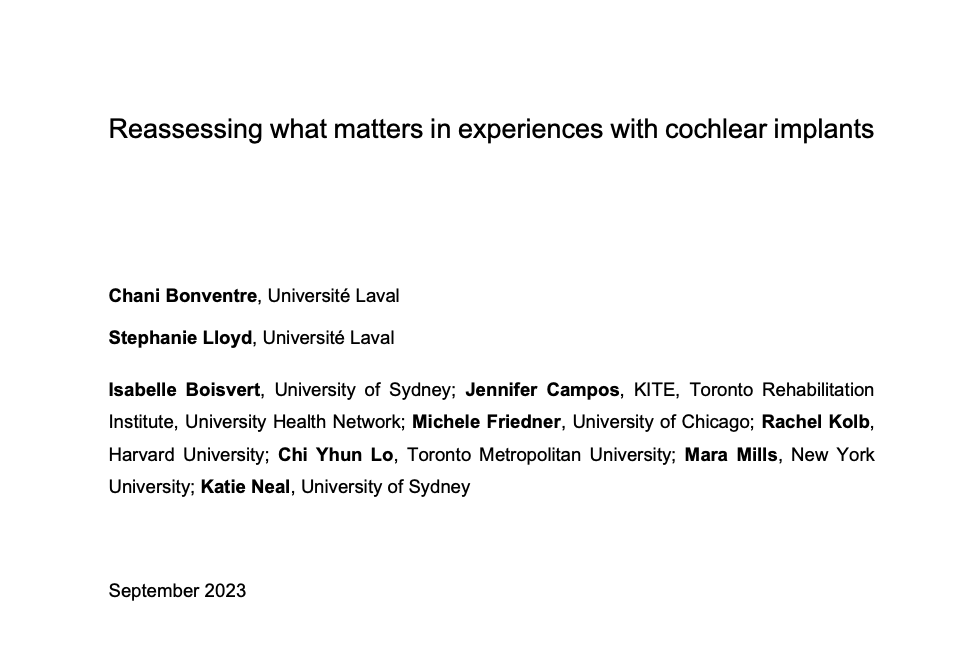
“Reassessing What Matters in Experiences with Cochlear Implants” is a white paper co-authored by a CIHR-funded research group, including CDS co-director Mara Mills. This white paper is the result of a two-day workshop at the Université Laval bringing together scholars with disciplinary expertise in anthropology, audiology, English literature, history, psychology, and science and technology studies, to consider what is known and unknown about the experiences of deaf people with/out CIs and how such experiences are shaped through diagnostic and therapeutic infrastructures. We foreground experiences of communication with CIs, more than cognitive, spatial, or mobility-related experiences, attending to the sensory, social, and embodied experiences associated with communication.

Disability in the History of Science, Technology, and Medicine (D+HSTM) is a new book series for scholars bringing disability theory into conversation with HSTM. This includes intersections with applied forms of the social sciences—demography, economics, anthropology, archeology, linguistics, music—as well as standard branches of medical science—pharmaceutics, insurance, surgery, physiology, healthcare.
We are interested in works that look at science as practiced within institutions that house or employ disabled people, the technologies and political systems used to categorize and classify disabled bodies, as well as stories of disabled professionals and lay experts working as experimenters or producers of scientific knowledge. We especially encourage proposals on non-Western and Global South histories of disability in HSTM.
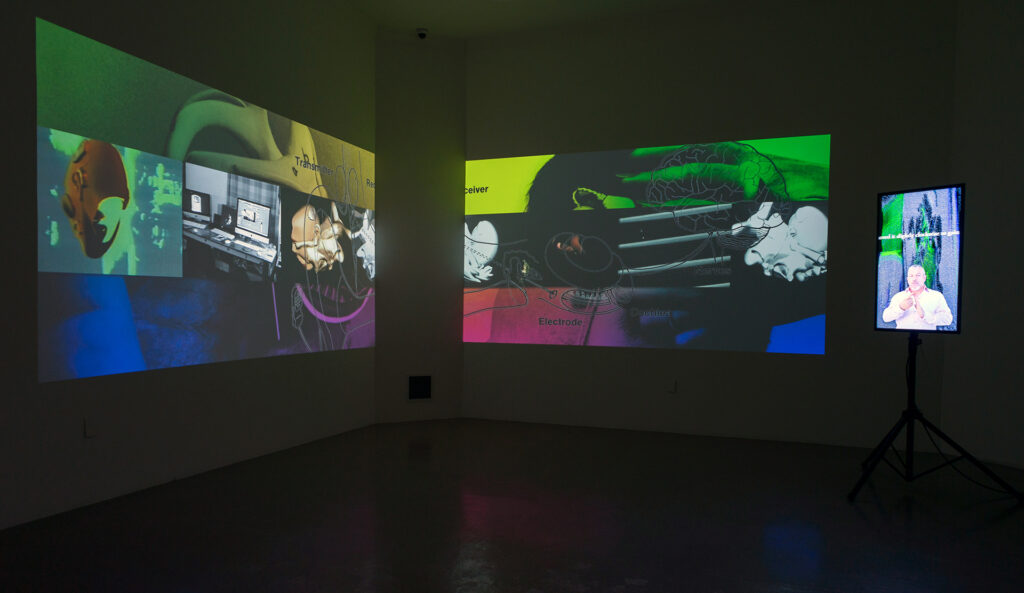
The Global Cochlear Implant
The University of Chicago
October 11-12, 2024
Co-sponsored by the NYU Center for Disability Studies and the University of Chicago Center for International Social Science Research, Center for East Asian Studies, and Department of Comparative Human Development Giannino Fund. Additional funding from The National Endowment for the Humanities Danger and Opportunities of Technology Program.
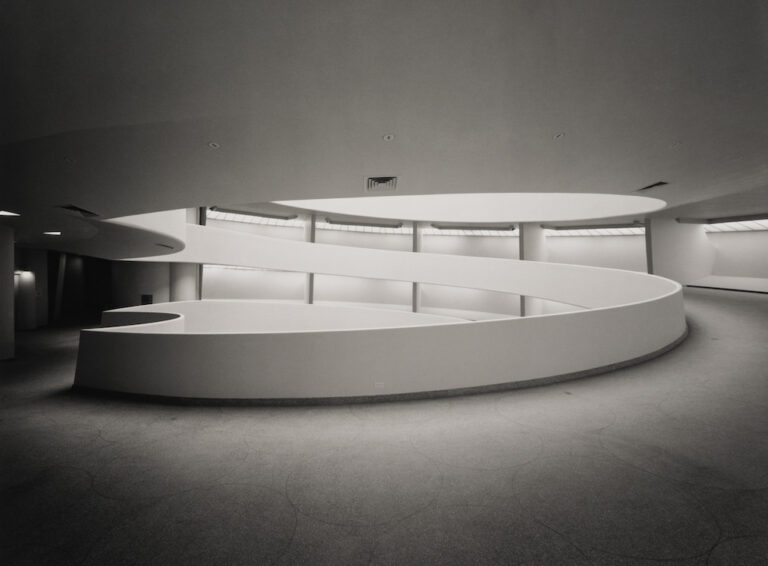
Alt Guggenheim: Ramps
Alt-Guggenheim: Ramps is an experimental symposium that brings together disability historians, artists, art critics, architects, designers, and students to consider the ramification of ramps, past and future, in the iconic setting of the Guggenheim Museum. A collaboration between Academic Engagement at the Guggenheim and the NYU Center for Disability Studies, this event is part of the Guggenheim’s Innovation Lab.



